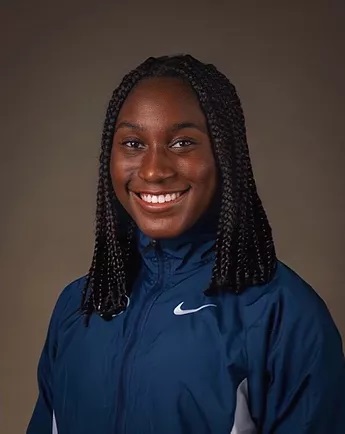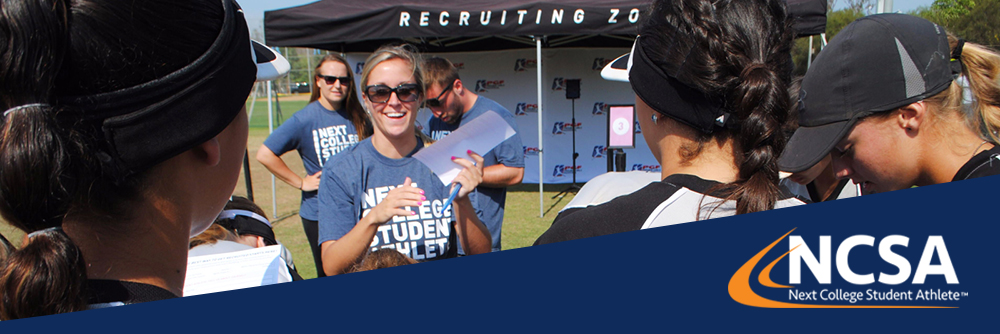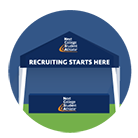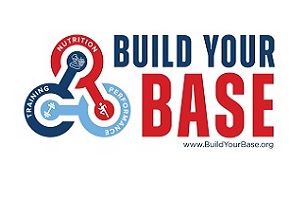NSAF College Recruiting Resources
The Track & Field Recruiting Guide, by Victoria Vanriele
 Victoria Vanriele, a 5-time NSAF Indoor and Outdoor Nationals All-American while at Governor Livingston HS in New Jersey (Class of '20), has launched a new website (https://www.vanrieletrackguide.com/) to provide "a guide for high-potential track & field high school athletes going through the NCAA DI recruiting process to help them achieve their main objectives."
Victoria Vanriele, a 5-time NSAF Indoor and Outdoor Nationals All-American while at Governor Livingston HS in New Jersey (Class of '20), has launched a new website (https://www.vanrieletrackguide.com/) to provide "a guide for high-potential track & field high school athletes going through the NCAA DI recruiting process to help them achieve their main objectives."
"As a high school athlete who was heavily recruited and now as a high-performing college athlete with an inside view of the recruiting process, I bring a unique perspective in conceiving this website that is completely free of charge," says Vanriele, now a rising sophomore at Penn State after being named 2021 Big Ten Women's Indoor Track and Field Freshman of the Year. "The website walks student-athletes through the recruiting process from beginning to end ... It’s my desire to reach as many student-athletes with the information on this website, particularly those who can’t afford a paying service, or don’t have coaches and parents who could help them navigate the recruiting process ... In all, this is a free one-stop guide, full of tips, analyses, anecdotes, explanations, and samples to get student-athletes ready and excited for a successful recruiting journey."
Victoria also provides a form on the site where athletes and families can reach out to her with questions and comments. Check out "The Track & Field Recruiting Guide" at https://www.vanrieletrackguide.com/.
Next College Student Athlete (NCSA)

For many high school athletes, college recruiting is at best a mystery and at its worst, it can be overwhelming. The hardest part is often just knowing when and how to get started. That’s why the NSAF has partnered with NCSA Next College Student Athlete, the world’s largest and most successful college athletic recruiting network. Every day, the many former college coaches and athletes at NCSA are helping high school athletes:
- Gain exposure to get discovered by college coaches
- Ensure they are on track to become NCAA and NAIA eligible
- Effectively contact and communicate with college coaches
- Find the best schools based on athletic and academic goals
NCSA is the official recruiting partner of the NSAF and offers practical advice and guidance every week on a wide range of recruiting topics. The following information will help athletes and their families better understand what the recruiting process is about and how to put together a more effective recruiting game plan.
Get evaluated and matched with college coaches. JOIN NCSA »
Quick Links
How College Coaches Recruit
Coaches methods may vary, but all of them agree that recruiting is one job that seemingly never ends. There’s the immediate need of filling this year’s recruiting class, but also looking ahead to the following year at potential recruits and so on.
Recruiting also varies by season so when fall sports are finishing up their recruiting, spring sports may still have some late recruiting to do. There are also recruiting differences by division with NCAA DI programs usually out in front trying to secure recruits as early as possible.
The following outline gives a very basic look at how most college coaches approach the recruiting process.
- Determine recruiting needs (position, grad year)
- Search online recruiting profiles, talk to high school and club coaches,
- Evaluate prospect video, academic information, check social media accounts
- Begin contacting athletes, follow profiles, extend camp invites, hold camps
- In-home meetings, meetings with current coaches
- Check NCAA/NAIA eligibility status, extend official visit offers
- Make initial verbal offers
- Sign players, look for last-minute recruits or transfers
- Repeat
The Three Most Common Recruiting Pitfalls
There are three common mistakes athletes and families tend to make when it comes to recruiting. They are:
- Assuming someone else is handling their recruiting
- Not putting enough emphasis on academics
- Selling themselves short by not exploring all opportunities
For athletes, your high school or club coach will play a big role in your recruiting, but it is up to you to know where you want to go to school and your coaches can help you from there.
Despite what you may have heard, talent and athletic ability are only part of the package. Below average academics will seriously limit your options. Period. Finally, it pays to seriously explore your all of your options. Many athletes start with just one or two target schools in mind only to find a college they love is one that wasn’t even on their radar.
Consider the type of college experience you really want
Once an athlete has decided they want to commit to competing in college, it would be good idea to sit down with their parents and discuss some basic education goals and college preferences. This will help focus your school search and college coaches also like working with athletes who know what college experience they are looking for.
Some of initial topics to consider would be:
- Education/major Is there a field of study you are really passionate about?
- Geography Would you like be close to home or across the country?
- Experience Do you want to compete all four years? Do you want a sport/social balance?
Searching for schools that offer the best fit
It should be no surprise that not everyone can compete at the Division I level. But that doesn’t mean there aren’t plenty of competitive programs at every NCAA level, also in the NAIA and many junior college programs.
Some of the oldest, but wisest recruiting advice is to ask yourself if you could be happy attending a school even if you could no longer play your sport.
Finding your best fit means really taking a close look at all the schools that offer what you’re looking for athletically and more importantly, academically. The goal is a four-year degree and a transfer can also extend your time in college and increase your expenses.
Transfers are not uncommon and some are made for really good reasons, but from a financial standpoint it is definitely worth investing some time to find a school where you can feel at home, enjoy the experience, get the education you want, and succeed in earning a degree in four years.
Preparing for NCAA, NAIA academic eligibility
Next to highlight videos, your transcript is probably the most reviewed by college coaches. They want to know before they invest the time and effort in recruiting you that you will be academically eligible.
This is a good time to get to know your guidance counselor or advisor at your high school. They will be able to provide copies of your transcript. They can also be of assistance when it comes to preparing for NCAA and NAIA eligibility which is something athletes and their families need to review in early high school.
Create a plan for taking your standardized test
Most colleges and universities accept both the SAT and or ACT. A good way to determine which test you should choose is to take the PSAT and Pre-ACT, which are the respective practice tests. If you do much better on the PSAT than the Pre-ACT, for example, you should consider the SAT over the ACT.
The best time for your student-athlete to take these practice tests is the summer before junior year. You will discover what sections they are lacking in and can prepare for those sections before taking the actual test for the first time.
It is preferred that student-athletes take the SAT or ACT at the beginning of their junior year. Student-athletes who are able to give coaches concrete test scores early on give themselves a leg up in the recruiting process, as it makes it easier for coaches to determine who to follow.
Another reason it’s important to take standardized tests during junior year is that many colleges have application deadlines of early November of your senior year; that doesn’t leave much time to get test scores up as a senior. It is recommended that you take the SAT or ACT again during your junior year if you’re looking to improve your score.
When summer hits, if you’re still dissatisfied with your test scores, this is your chance to do final study prep for the beginning of your senior year. The last ACT for early action/decision is held in October; for the SAT, it’s October or November (depending on the college’s deadline). For regular-decision applicants, December of your senior year is the last time you can take the SAT or ACT.
Get evaluated and matched with college coaches. JOIN NCSA »
Create an online presence so college coaches can find and learn more about you
College recruiting begins early and for the majority of athletes it begins online. Recruiting budgets are tight and with so many prospects to review, many college programs begin their search and initial evaluation of recruits with information they find online. That’s why it is important to create a searchable online profile complete with the information coaches want to see including:
- Name, high school, grad year, position
- Physical stats (height, weight)
- A key sport measurable (PRs in your events)
- Your high school transcript with GPA and ACT or SAT scores
- Highlight video (if applicable)
NCSA provides a free recruiting profile to all of our members. More than 35,000 college coaches actively search NCSA profiles every year looking for athletes to fill their open roster spots.
How social media is used in recruiting
Creating a good online presence also means taking a hard look at all of your social media accounts and making sure there is no content that may adversely affect your recruiting.
Most everyone is familiar with the stories of scholarships being pulled because of inappropriate posts, however, social media can also be a great recruiting tool. Well managed social media accounts can give coaches a good look at who you are as a person, demonstrate your maturity and passion for your sport, and how you treat others including teammates, coaches and parents.
Twitter over the last couple years has become a college coach favorite and often use this platform to follow and contact student-athletes by direct messages.
Coaches need to see video
For many sports, coaches obviously want to see you in action and videos posted to your online profile make it easy for them to get a look. Keep in mind, coaches may be looking at dozens of videos at a clip, so it’s important to follow these rules when creating your highlight video:
- Keep it short, 3-5 minutes at the most
- Don’t save the best for last, put your best performances first
- Keep the camera steady
- Capture the event, not just the individual
High production values, music, and graphics are not important. Keep in mind, coaches are not seeking out spectacular SportsCenter-type plays in game-winning situations. They want to see footwork, speed, size, athleticism, and solid fundamentals in your event.
How to establish communication with college coaches
As you begin your recruiting efforts, you may often hear or read that, “If you’re good enough, coaches will find you.” While this is true for some elite athletes, the majority of high school athletes must reach out directly to college coaches to make their presence known.
 Email is often a great first step. Before hitting send, make sure you’ve done your homework about the coach, the school, and the program. Include your basic athletic information and GPA. You should be able to explain why you are interested in the school and how you could contribute to the team. You should also include a link to your online profile as well as your best contact information.
Email is often a great first step. Before hitting send, make sure you’ve done your homework about the coach, the school, and the program. Include your basic athletic information and GPA. You should be able to explain why you are interested in the school and how you could contribute to the team. You should also include a link to your online profile as well as your best contact information.
 Phone As you can imagine, a coach’s email is often stacked with incoming emails. What many athletes don’t know is that coaches receive very few phone calls from recruits. A phone call is a great way to introduce yourself in person and to make a memorable impression. But don’t pick up the phone until you are prepared with questions to ask the coach and also prepared for questions the coach may have for you. Chances are you may not got through the first time , so again, be prepared to leave a voice mail.
Phone As you can imagine, a coach’s email is often stacked with incoming emails. What many athletes don’t know is that coaches receive very few phone calls from recruits. A phone call is a great way to introduce yourself in person and to make a memorable impression. But don’t pick up the phone until you are prepared with questions to ask the coach and also prepared for questions the coach may have for you. Chances are you may not got through the first time , so again, be prepared to leave a voice mail.
 Social media Some athletes are reaching out and connecting with coaches through social media. Only reach out if you are active and monitor the channel (so you don’t miss any messages) and that there is nothing questionable posted in your account.
Social media Some athletes are reaching out and connecting with coaches through social media. Only reach out if you are active and monitor the channel (so you don’t miss any messages) and that there is nothing questionable posted in your account.
 In person Camps and unofficial visits are a great time to introduce yourself to a college coach. Coaches understand you might be a little nervous, but if you’ve done your homework, don’t resort to one-word answers, and stay off your phone, it’s a great opportunity to make a personal connection with a college coach.
In person Camps and unofficial visits are a great time to introduce yourself to a college coach. Coaches understand you might be a little nervous, but if you’ve done your homework, don’t resort to one-word answers, and stay off your phone, it’s a great opportunity to make a personal connection with a college coach.
The role of camps, combines, showcases and tournaments
One of the necessary parts of any well-rounded recruiting process is attending camps, combines, showcases and tournaments. These events give college coaches the opportunity to watch a large number of recruits in a single place or allow top recruits to compete against one another. The challenge for any family is deciding what events to attend. Here is a guide for understanding the value of different recruiting events:
• College Camps – the camps hosted by individual colleges are great opportunities to get in front of a specific program. That said, you want to make sure you have a legitimate chance with any school before you invest in attending that camp.
• 3rd Party Camps – The goal of these events can range from pure skill development to “made for recruiting” events where top recruits are brought in to compete against one another. Just be sure you are clear on what you want to get out of any camp you are attending and make sure that is what that camp is going to provide.
• Combines – Coaches in many sports are starting to rely more and more on standardized athletic numbers like 40-time (football) and 60-yard time (baseball), for example. It is a great idea to get your combine numbers once or twice a year from events coach’s trust the stats are verified and accurate.
• Showcases – These are made for recruiting events, popular in many sports. Whether conducted by your club or a 3rd party, these events attract several college coaches who all come to watch a group of recruits run through drills and compete. Make sure the coaches you are interested in or would be interested in are attending any showcase you would consider attending.
• Tournaments – Large tournaments have become the go-to recruiting events for many college coaches.
Once you have decided on an event, make sure you contact coaches prior to the start to let them know you will be attending, and always follow-up with coaches afterward.
This information briefly covers some of the major milestones and interactions that take place during a typical recruiting journey and having this knowledge now will help get your recruiting effort off to a great start. If you have any more questions or would like more information about getting your recruiting plan in place, you can always contact NCSA at 1-866-495-5172.
Get evaluated and matched with college coaches. JOIN NCSA »





